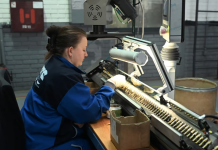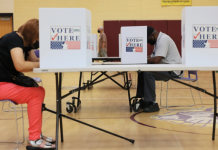In the not-so-distant past, U.S. employers looking to hire new graduates simply turned away most of them because there were usually too many applicants for too few job openings.
Now, not only do jobs outnumber available workers, but also, more employers are finding that too many graduates are either underqualified or underprepared for entry-level jobs on several fronts. They therefore tend to favor older candidates.
“There’s always a hesitation to hire people right out of college unless the job is specifically entry-level,” Diane M. Gayeski, professor of strategic communication at Ithaca College in Ithaca, New York, told The Epoch Times via email.
“In many industries, companies are hiring people right out of school for six-month internships—and if they don’t work out, they simply are not offered a position rather than having to fire them.”
And another one in four said that recent graduates were underprepared for interviews.
These two findings came from a December 2024 survey of 1,000 managers involved in hiring for entry-level positions to learn about their attitudes toward offering opportunities to recent college graduates.
Other findings from hiring managers were that one in three said recent graduates lack work ethic; 29 percent said graduates come to a job interview feeling entitled; during interviews, college graduates struggle with eye contact, dressing appropriately, and negotiating compensation; nearly one in 10 hiring managers have had a candidate bring a parent to an interview; approximately one in four said graduates are easily offended, lack punctuality, and don’t respond well to feedback; and 55 percent said they had to fire a recent college graduate in 2024.
Gayeski put part of the blame on the graduates themselves, citing a “different set of values” than previous generations.
“They have seen their elders burn themselves out in their jobs, sometimes only to be downsized out of work,” she said. “They question the integrity of companies and their leaders. They seek a work-life balance that gives them time to pursue their own passions and relationships.”
She said that factors not existing or not prevalent among previous generations also have to be considered.
“Over the past two to three years, graduating college seniors had their educational experiences highly impacted by COVID,” Gayeski said.
“Most of them spent one to two years of their high school or college careers online, which meant that they didn’t develop some of the interpersonal skills and confidence in working and speaking in groups than prior cohorts.
“Many also did not have the opportunity to have guest speakers, work in co-curricular groups or clubs, be members of athletic teams, or have internships—all of which develop leadership skills and some of the kinds of performance expectations, such as being on time, that employers value.”
“Recent college graduates should be aware of the negative perceptions and biases that exist against them,” Nguyen said. “By understanding what frustrates managers the most and taking an intentional approach to interviewing, candidates can increase their chances of making a good impression and standing out among the sea of other applicants.”
To this end, he recommended some time-honored precepts spanning any previous generation: Spend time thoroughly researching interested companies. Tailor resumes, cover letters, and any outreach communication to the specific job. Be prepared to demonstrate initiative and genuine interest by asking thoughtful questions and articulating how personal values and experiences align with an organization.
“It’s important to find individuals who’ve demonstrated motivation, adaptability, and growth potential,” Nguyen said. “Specific skills and processes can be easily taught to someone who is motivated and has the right attitude.”
Gayeski said she is starting to see many more graduates who possess the right workplace skills and attitude than ones who don’t.
“I do believe that the negative impacts of COVID are now in the past, and students are back to engaging in more leadership, teamwork, and internship activities, which will likely improve their abilities to communicate effectively,” she said.
“However, it’s not just younger employees who are rethinking their relationships with work. Many employees across all demographic groups report a lack of trust and engagement with their companies and are seeking a more balanced lifestyle. They are demanding more flexible work styles, such as hybrid work and flexible shifts, as well as accommodation of their special needs.”






















